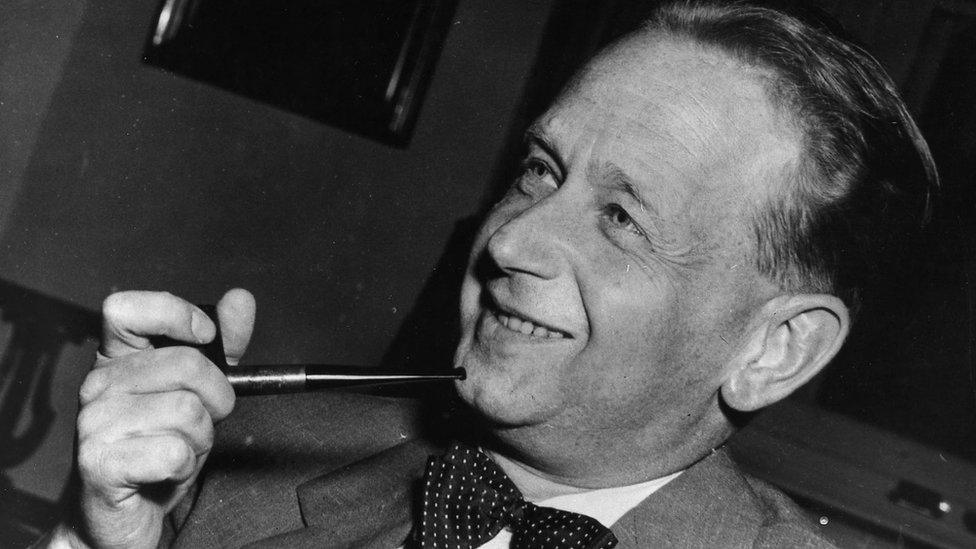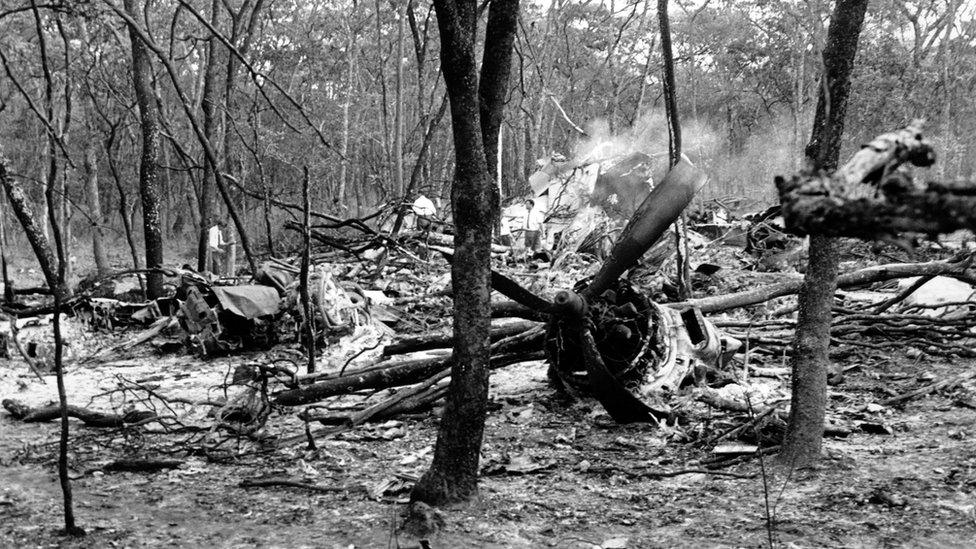Hammarskjold death: UN asked to launch fresh inquiry
- Published

Dag Hammarskjold was trying to mediate between Congo's Soviet-backed government and a breakaway province
A resolution is being presented to the UN General Assembly asking for a special investigator to look into the 1961 plane crash that killed then UN Secretary General Dag Hammarskjold.
The plane went down over what is now Zambia during a diplomatic mission to help broker a ceasefire in the Congolese civil war.
Pilot error was initially suspected.
However, new evidence has emerged which sceptics say could add weight to suspicions of foul play.
The UN resolution would seek to compel countries to hand over documents and radio intercepts to a special investigator, which might nail down the truth of what really happened, BBC South Africa correspondent Karen Allen says.
Dag Hammarskjold: Crash or a conspiracy?
Mr Hammarskjold and his aides had been flying to Ndola in what was then Northern Rhodesia, now Zambia, to meet Moise Tshombe, who had declared independence for the mineral-rich Congolese province of Katanga.
The DC6 aircraft crashed in darkness in a forest near Ndola shortly before landing, killing the Swedish diplomat and 15 others on board.

The plane came down near Ndola, Zambia
The reason for the crash has never been fully explained, despite three official investigations.
The third investigation, by the UN in 1962, reached an open verdict and did not rule out sabotage or attack.
Then in 2015, the UN set up a panel of independent experts to examine new evidence in the case.
Our correspondent says more recent information includes eyewitness accounts of white men in Land Rovers close to the crash site.
That has fuelled speculation that foreign agents could have been involved as part of a complex plot which put Cold War rivalries and European mining interests centre stage, she says.